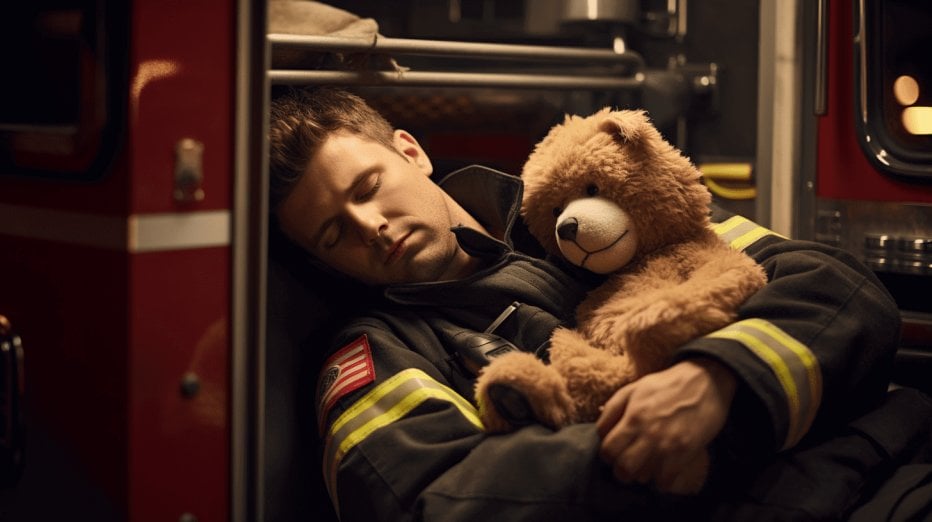Want Better Sleep? Try Using Sunlight!

By Danielle Cook, MS, RD, NBC-HWC, CPT
Poor sleep is common for many firefighters and believe it or not, a good night’s sleep starts from the moment you wake up in the morning. There are two main drivers for sleep – circadian rhythm (also called sleep-wake-cycle) and sleep-wake homeostasis. Circadian rhythm is your built-in 24-hour(ish) clock. It’s controlled by light and dark signals and to a lesser degree exercise, eating, and body temperature. Morning light wakes you up and darkness makes you feel sleepy.
Sleep-wake homeostasis is mainly driven by the build-up of a hormone called adenosine. When this hormone builds up in your brain, it makes you feel sleepy. Caffeine blocks adenosine receptors, which is why caffeine can make you feel more awake.
The most effective way to improve sleep is to strengthen your circadian rhythm. And hands down, the most powerful way to do this is with sunlight.
Start your day by getting outside and exposing your eyes to sunlight. Viewing morning sunlight has the following impact on wakefulness during the day and sleepiness at night:
- Increases morning cortisol release (your cortisol is highest in the morning and declines throughout the day) making you feel more awake during the day
- Starts a 12ish hour timer for when you will feel sleepy in the evening
How to use morning sunlight:
- Within one hour of waking and within two hours after sunrise, go outside without sunglasses (glasses and contacts OK) for 10 – 15 plus minutes on sunny days and 20 – 30 plus minutes on cloudy days (don’t look directly at the sun).
- If you got less than 6 hours of consecutive sleep the previous night, avoid early morning sunlight and try to take a 20-120 minute nap, awake by 3 pm.
- If you rise before the sun, turn on bright lights and then go outside soon after the sun has risen.
- If you cannot get outside (or for long enough), use a light box for 15-30 minutes upon waking.
Viewing late afternoon sunlight also has a profound impact on improving your sleep. Afternoon sunlight improves sleep in the following ways:
- It lets your brain know it’s evening and time to prepare for sleep.
- Our bodies produce melatonin in the evening, which makes you feel sleepy. Bright lights at night reduce melatonin production. Afternoon light partially desensitizes your eyes to evening light.
How to use late afternoon sunlight:
- View late afternoon sunlight for 15-30 minutes without sunglasses.
Additional light tips for sleep:
- Avoid bright and artificial lights at night (after sunset and especially after 10 pm to 4 am). This not only reduces melatonin production but also decreases dopamine levels, negatively impacting moods.
Podcast
Contests & Promotions
















